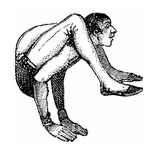
Love on Trial
NEW OXFORD NOTEBOOK
The coronavirus shutdowns put much of life on pause. They postponed weddings and baptisms, vacations and travel, and, in some locales, even home sales and evictions.
The shutdowns also put off a landmark canonical trial in the Episcopal Church.
Back in April of this year, William Love, Episcopal bishop of Albany, New York, was to present himself before a hearing panel for “failing to abide by the promises and vows made when he was ordained.”
What was Bishop Love’s canonical crime? Did he misappropriate money donated for charitable purposes or otherwise defraud the diocese? Did he deny the divinity of Christ or otherwise disparage the Creed? Did he carry on an extramarital affair or otherwise engage in sexual misconduct?
Nope. None of the above.
Bishop Love was to go on trial for refusing to allow same-sex marriage rites in his diocese.
At the Episcopal Church’s 79th General Convention in 2018, the House of Deputies and the House of Bishops, by a combined vote of 200 to eight (plus five “divided” votes), overwhelmingly approved Resolution B012, also known as Marriage Rites for the Whole Church. This “historic resolution,” the official Episcopal News Service gleefully reported, gives “all Episcopalians…full access to two trial-use marriage rites for same-sex and opposite-sex couples” so they can be “married by their priests in their home churches” (July 13, 2018).
And so, as of 2018, it was Bishop Love’s responsibility to make same-sex marriage rites available to his flock. That he would not do so constituted, in the eyes of his church, a violation of the vows he made at his ordination — in 1992.
You May Also Enjoy
Viewed from the perspective of home and community, there's so much value attached to the work of stay-at-home mothers, that we've only just begun to count the cost of losing them to the workplace.
There are no protagonists in the latest liturgical drama, only antagonists. Nobody comes out clean, neither traditionalists nor Pope Francis.
Just when we were beginning to think that things couldn't get any more schizoid in the Anglican Communion, things are getting, well, more schizoid.

